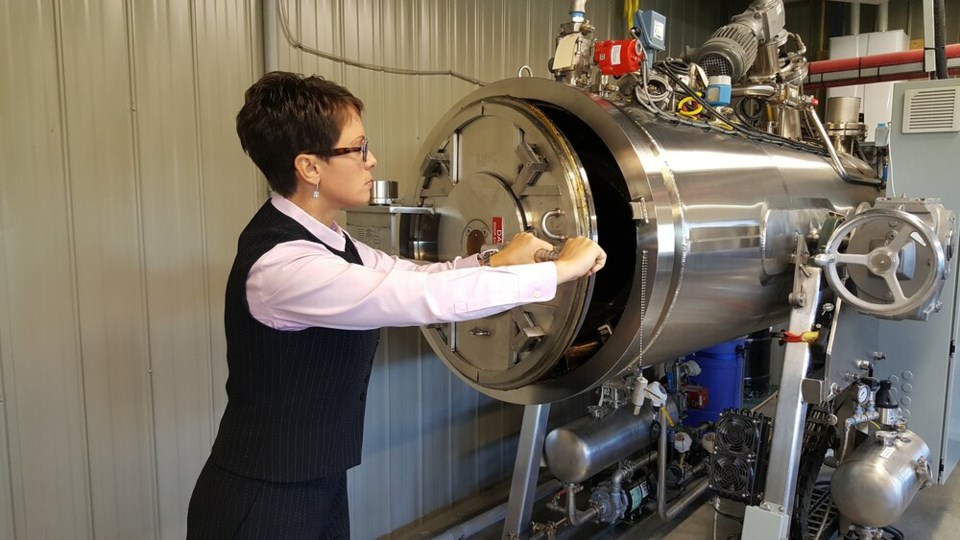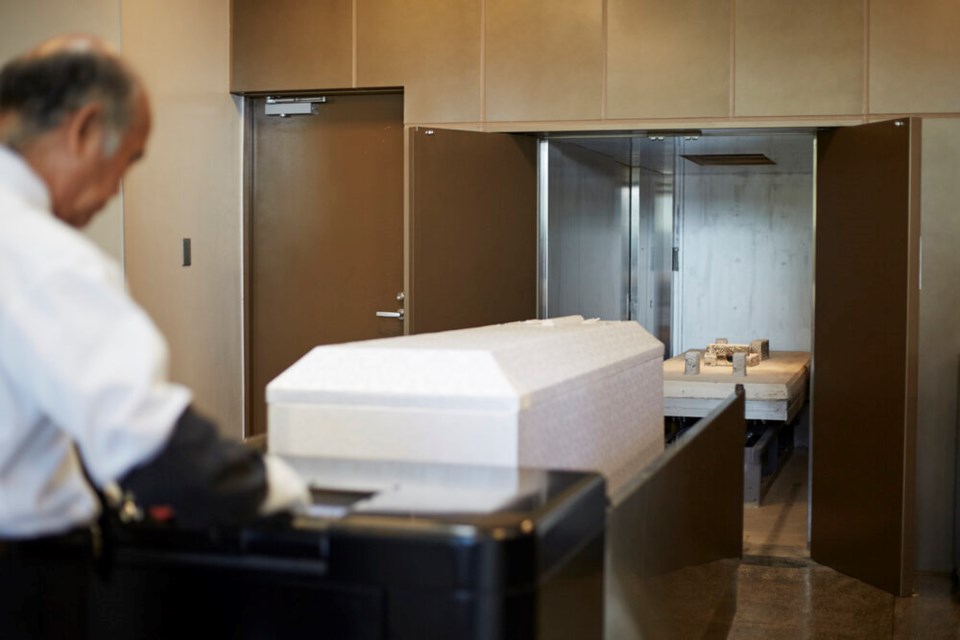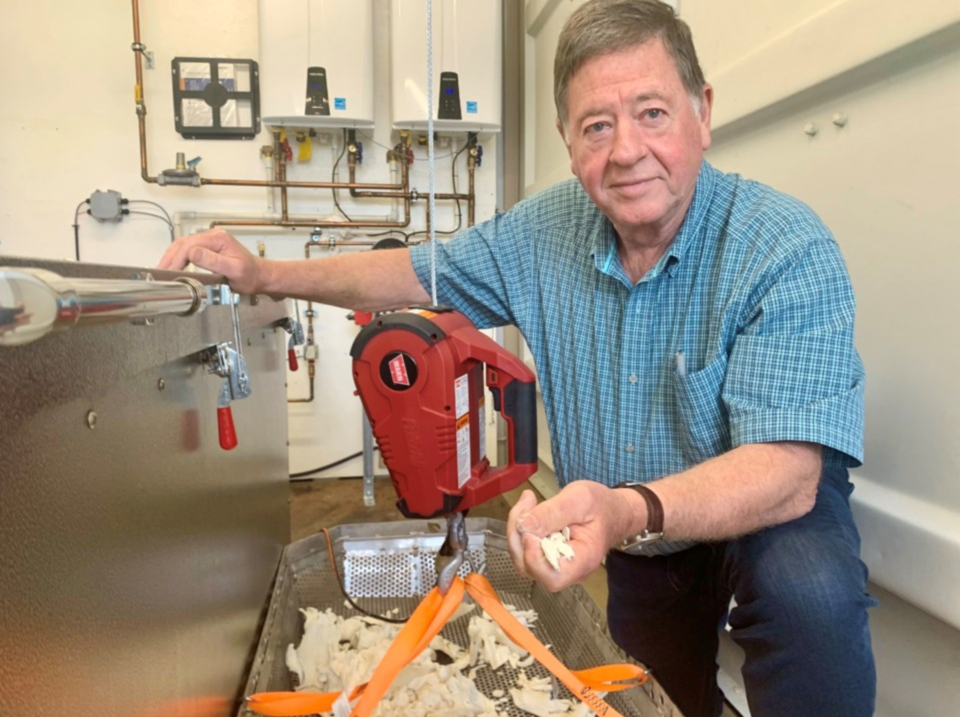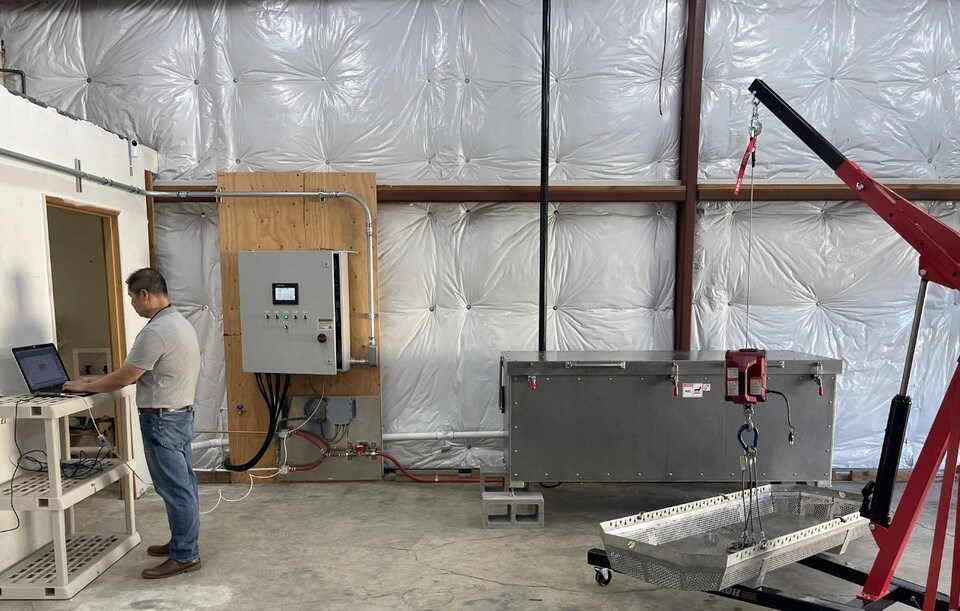Increasingly popular ways to lay to rest a deceased loved one — from water cremation to organic reduction in a box of soil — are not allowed in B.C., even if conducted outside of the province.
Current provincial law dictates there are no legal end-of-life measures beyond burial or flame cremation for managing human remains, according to direction recently provided by Consumer Protection BC to industry.
The provincial body, which among other duties inspects certain regulated businesses and investigates alleged violations of consumer protection laws, clarified current laws on human remains in a recent email to funeral home directors.
Tyrel Burton, director of Alternative Funeral & Cremation Services and one of the businesses who received the email, said the statements represented a nail in the coffin for hopes to expand water cremation — or alkaline hydrolysis — in British Columbia.
They also limit any plans local funeral homes may have harboured to work with partners in Washington state, where water cremation is legal, and where British Columbians could have accessed that service and had remains transferred back to Canada.
“It basically handcuffs us,” Burton said.
The rising cost of death
Costly burials are increasingly out of reach for many families, and flame cremations —which burn bodies using natural gas — are far from a green option, said Burton, whose company has 21 locations across the Fraser Valley and Metro Vancouver, as well as two facilities in Saskatchewan.
Another problem facing funeral homes across the region is growing demand. B.C.’s population is aging, with more baby boomers passing away every year, and many crematorium operators are already maxed out on the number of flame cremations they can perform over the course of a year.
“Our machines are at capacity,” Burton said.

But as funeral homes look to meet that demand, there are few communities interested in allowing a new crematorium in their backyard.
In Burton’s case, his company’s Aldergrove crematorium was given a permit in the 1990s when it sat next to little more than a highway. As the community grew up around them, Burton said the surrounding Township of Langley changed its bylaws and only allowed the funeral home’s crematorium to keep operating through grandfathered approvals.
Today, Burton said it would be “near impossible” to pick up and move somewhere else.

When Delta’s Riverside Funeral Home and Crematorium recently laid out plans to build a new facility in Surrey, it faced a major public backlash. In less than three weeks, more than 4,300 people signed a petition opposing its construction.
“Nothing unites a community like a threat of a crematorium,” Burton said. “But it’s a service everyone needs.”
With few communities willing to host a new cremation facility, some funeral homes have resorted to sending human remains south to be flame cremated in Washington state.
Others have opted to build a crematorium far away. In at least one case, a funeral home operating in Metro Vancouver built a crematorium on Vancouver Island, and today ships multiple deceased individuals on the ferry on a regular basis.
‘Aqualyser’ offers accelerated water burial
Billed as a green process, alkaline hydrolysis — unlike flame cremation — does not produce any emissions. That also makes it a more acceptable technology for many neighbouring residents, say proponents.
Over the last couple of years, Theo Nguyen and his colleagues at Harbourview Electrical Ltd. in Burnaby invented a locally built, low-cost, low-pressure water cremation machine.
The shape and size of a large chest freezer, the “Aqualyser” is filled with water and potassium hydroxide. Heating elements then raise the mixture’s temperature past 100 degrees Celsius. When a body is lowered into the bath, the tissues decompose in a kind of accelerated water burial.
Eight to 12 hours later, all that is left is a brittle collection of transformed bone that can be scattered at sea, in the earth or added to soil as fertilizer.

The affordable, eco-friendly burial method has received significant in interest in B.C., say several funeral home directors.
Looking to take advantage of that interest, Nguyen and his colleagues planned to produce the steel chambers through a manufacturer in Salmon Arm. Once completed, they would be shipped to Harbourview’s Burnaby facility where workers would install the computer systems and controls.
But with the B.C. government standing its ground against alternative burial methods, that potential production line is being increasingly put at risk.
Without local options, B.C. company turns to U.S. market
Amid the uncertainty, Nguyen and his colleagues turned their attention to U.S. markets. In recent months, they have been testing the Aqualyser at a funeral home in Oregon, and so far have water cremated the remains of nine people.
Now, Nguyen is looking to another operator in St. Louis, Mo., and possibly Washington state, where water cremation laws have been updated.
“We are moving forward. Just ever so slow,” said Nguyen.
“It’s definitely disappointing,” he added. “There’s no option for British Columbians.”
That is, until the B.C. government updates its aging Cremation, Interment and Funeral Services Act.

In 2022, a B.C. government spokesperson said the Ministry of Public Safety and Solicitor General would consult with several parties — including independent funeral directors, municipalities, First Nations and Consumer Protection BC — as it considered the feasibility of water cremation in B.C.
Three years later, a spokesperson with the Ministry of Attorney General says it is aware of increasing interest in alternatives to traditional burial and cremation, including alkaline hydrolysis.
The spokesperson said it is currently carrying out research and consultation to understand “the full range of implications associated with enabling these methods of disposition in British Columbia.”
“This work is currently underway and the ministry hopes to have an update on the modernization of the Cremation, Interment and Funeral Services Act within the next year,” the statement read.
Burton said he understands the provincial government has lot of other priorities and doesn’t expect it to change the law “on a dime.”
“I’ve picked at them over the years,” he said.
“I don’t think it’s going to change anytime soon.”



